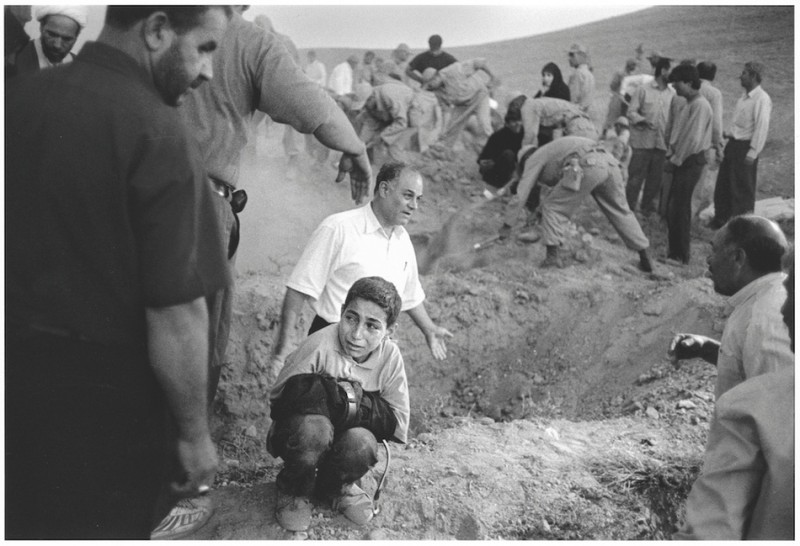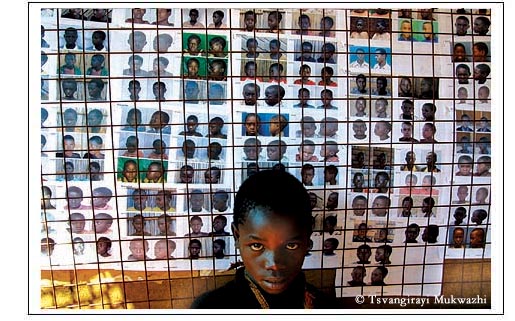Subscribe to ShahidulNews
![]()
My questions are many. Why is there no UN resolution against the United States, for blatantly initiating an unprovoked genocide? Whydoes not the UN Security Council, demand that the most habitual aggressor in recent history, disarm and destroy
its weapons of mass destruction? Why is it that despite our collective strength, the most we can muster is a passive condemnation of a mass murder? Whatever may happen after the bombs have dropped, we will not be able to hide our shame. It may not have been in our name, but we sat and watched. We allowed it to happen. It is a guilt that will haunt us. While I sit in anger, wondering how, despite all our rhetoric, we watched a nation being plundered, without raising a finger to stop it, this quiet reflection from Baghdad University campus brings homethe extent of our complicity. These are the people we allowed to be destroyed. Our lives will go on, and we will face another day. They will not. And we will be content because we had said no
Shahidul Alam
Mon Mar 17, 2003
===============================================================
At the College of English, it is most definitely springtime. Co-eds are chattering cheerily and they smile as we pass. "We are intent on finishing the syllabus, war or no war," says Professor Abdul Jaafar Awad. He tells us that during the Gulf War of 1991, he was discussing a doctoral dissertation with a student while American and British warplanes were bombing Baghdad. Jawad's determination to carry on despite the approach of war is shared by the students at his department.
Students at a class on Shakespeare are discussing Romeo and Juliet when we interrupt them. No, they say, they don't mind answering some questions from the Asian Peace Mission. They are carrying on with Shakespeare, but their answers show that morally they are on war footing. What do they think of George Bush? "He is like Tybalt, clumsy and ill-intentioned," says a young woman in near perfect English. What do they think about Bush's promise to liberate them? Another co-ed answers, "We've been invaded by many armies for thousands of years, and those who wanted to conquer us always said they wanted to liberate us." What if war comes, how would they feel? Another says, "We may not be physically strong, but we have faith, and that is what will beat the Americans." A young professor tells me, "I love teaching, but I will fight if the Americans come." These are not a programmed people. Saddam Hussein's portrait may be everywhere, but there are not programmed answers. In fact, we have hardly encountered any programmed responses from anybody here in the last few days. Youth and spring are a heady brew on this campus, and it is sadness that we all feel as we speed away, for some of those lives will be lost in the coming war. As one passes over one of the bridges spanning the Tigris River, one remembers the question posed by Dr. Jawad: "Why would today's most powerful industrial country wish to destroy a land that gave birth to the world's most ancient civilization?" It is a question that no one in our delegation can really answer. Control of the world's second biggest oil reserves is a convenient answer, but it is incomplete. Strategic reasons are important but also incomplete. A fundamentalism that grips the Bush clique is operative, too, but there is something more, and that is power that is in love with itself and seeking to express that deadly self-love.
An American journalist I meet at the press centre says the people are carrying on as usual because they are in deep denial of the power that will soon be inflicted on them. I wish he had been with us when we visited the campus earlier in the day, to see the toughness beneath the surface of those young men and women of Baghdad University. Like most of the Iraqi we have met over the last few days, they are prepared for the worst, but they are determined not to make the worst ruin their daily lives.
Tomorrow afternoon, March 17, the date of the American ultimatum for Iraq to disarm or face war, we in the Asian Peace Mission will be travelling by land on two vans flying the Philippine flag to the order with Syria. Dita Sari, the labour leader from Indonesia, was offered a ride to the border this evening by the Indonesian ambassador, who was very concerned about her safety. She refused, saying she would leave only when the mission left. We are leaving late and cutting it close because all of us–Dita, Philippine legislators Etta Rosales and Husin Amin, Pakistani MP Zulfikar Gondal, Focus on the Global South associate Herbert Docena, our reporter and cameraman Jim Libiran and Ariel Fulgado, and myself–feel the same compulsion: we want to be with the Iraqi people as long as possible.


